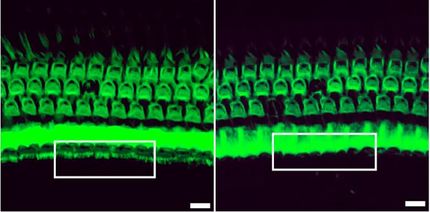Genetic model identifies primary myelofibrosis outcomes
A group of investigators from Mayo Clinic and multiple academic research centers in Italy have identified a genetic model for predicting outcomes in patients with primary myelofibrosis who are 70 years or younger and candidates for stem cell transplant to treat their disease. The group's findings were presented today at the 59th American Society of hematology annual meeting in Atlanta by lead authors Alessandro Vannucchi, M.D. from the University of Florence and Ayalew Tefferi, M.D., a hematologist at Mayo Clinic.
"Myelofibrosis is a rare type of chronic leukemia that disrupts the body's normal production of blood cells," says Dr. Tefferi. "Prior to this study, the most comprehensive predictive model for outcomes in myelofibrosis, utilized mostly clinical variables, such as age, hemoglobin level, symptoms, white blood cell count and the percentage of immature cells in the peripheral blood."
Dr. Tefferi says he and his colleagues incorporated new genetic tests in the model for gene mutations including JAK2, CALR, and MPL, which are known to drive myelofibrosis. He says the new model also tests for the presence or absence of high-risk mutations such as ASXL1 and SRSF2. "Our model is also unique in that we developed it for patients who are age 70 years or younger who may still be candidates for a stem cell transplant to treat their disease," Dr. Tefferi says.
Researchers studied 805 patients with primary myelofibrosis who were 70 years of age or younger. Patients were recruited from multiple centers in Italy and from Mayo Clinic in Minnesota. The Italian and Minnesota groups formed two independent learning and validation cohorts. "We were surprised by how similar the predictive models performed in two completely separate patient databases," Dr. Tefferi says.
Dr. Tefferi says that genetic information is increasingly being used as a prognostic biomarker in patients with primary myelofibrosis and he anticipates the potential use of such an approach along with relevant clinical, cytogenetic and mutational data for other hematologic and non-hematologic cancers.
Most read news
Other news from the department science

Get the life science industry in your inbox
By submitting this form you agree that LUMITOS AG will send you the newsletter(s) selected above by email. Your data will not be passed on to third parties. Your data will be stored and processed in accordance with our data protection regulations. LUMITOS may contact you by email for the purpose of advertising or market and opinion surveys. You can revoke your consent at any time without giving reasons to LUMITOS AG, Ernst-Augustin-Str. 2, 12489 Berlin, Germany or by e-mail at revoke@lumitos.com with effect for the future. In addition, each email contains a link to unsubscribe from the corresponding newsletter.





















































